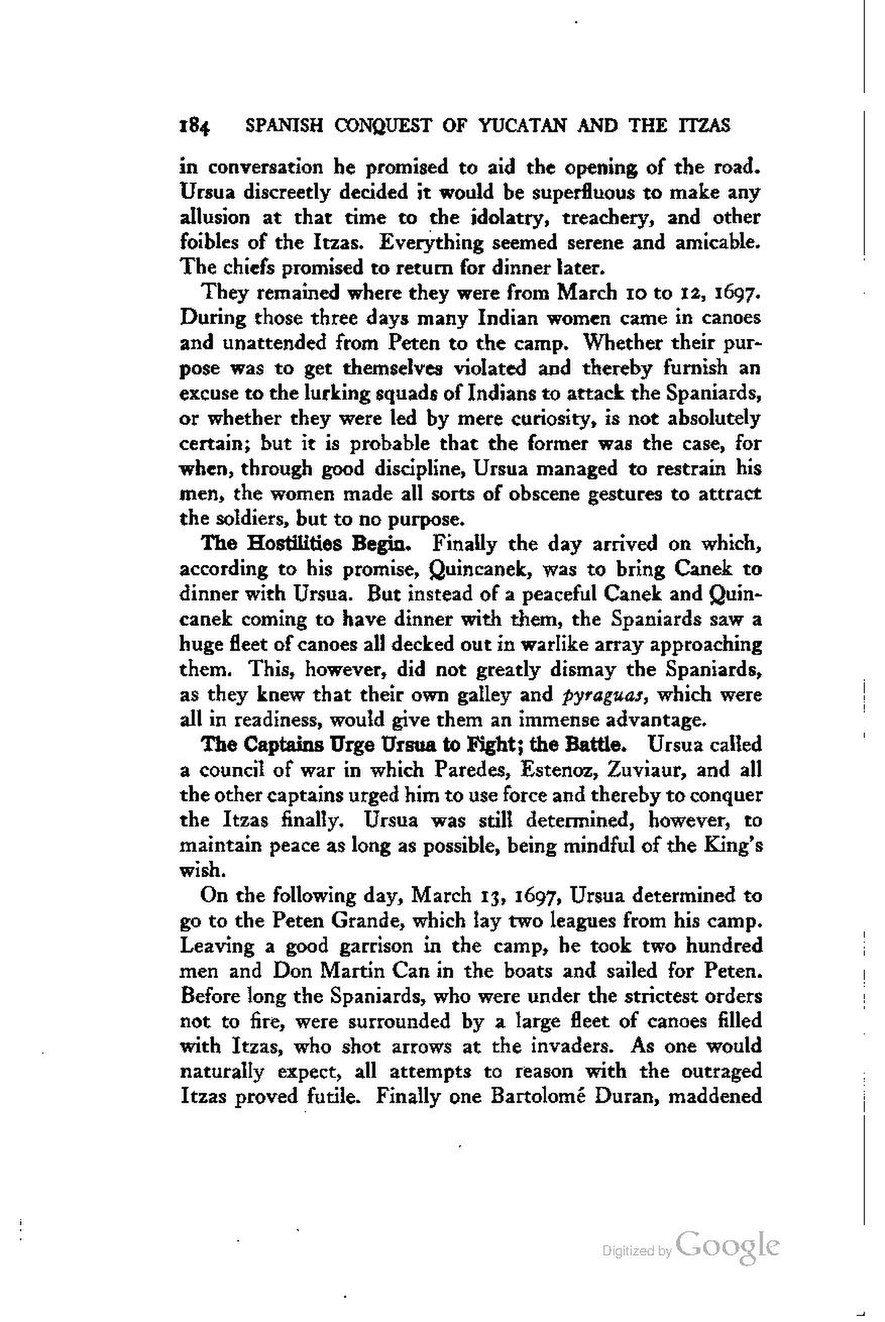in conversation he promised to aid the opening of the road. Ursua discreetly decided it would be superfluous to make any allusion at that time to the idolatry, treachery, and other foibles of the Itzas. Everything seemed serene and amicable. The chiefs promised to return for dinner later.
They remained where they were from March 10 to 12, 1697. During those three days many Indian women came in canoes and unattended from Peten to the camp. Whether their purpose was to get themselves violated and thereby furnish an excuse to the lurking squads of Indians to attack the Spaniards, or whether they were led by mere curiosity, is not absolutely certain; but it is probable that the former was the case, for when, through good discipline, Ursua managed to restrain his men, the women made all sorts of obscene gestures to attract the soldiers, but to no purpose.
The Hostilities Begin. Finally the day arrived on which, according to his promise, Quincanek, was to bring Canek to dinner with Ursua. But instead of a peaceful Canek and Quincanek coming to have dinner with them, the Spaniards saw a huge fleet of canoes all decked out in warlike array approaching them. This, however, did not greatly dismay the Spaniards, as they knew that their own galley and pyraguas, which were all in readiness, would give them an immense advantage.
The Captains Urge Ursua to Fight; the Battle. Ursua called a council of war in which Paredes, Estenoz, Zuviaur, and all the other captains urged him to use force and thereby to conquer the Itzas finally. Ursua was still determined, however, to maintain peace as long as possible, being mindful of the King's wish.
On the following day, March 13, 1697, Ursua determined to go to the Peten Grande, which lay two leagues from his camp. Leaving a good garrison in the camp, he took two hundred men and Don Martin Can in the boats and sailed for Peten. Before long the Spaniards, who were under the strictest orders not to fire, were surrounded by a large fleet of canoes filled with Itzas, who shot arrows at the invaders. As one would naturally expect, all attempts to reason with the outraged Itzas proved futile. Finally one Bartolomé Duran, maddened
